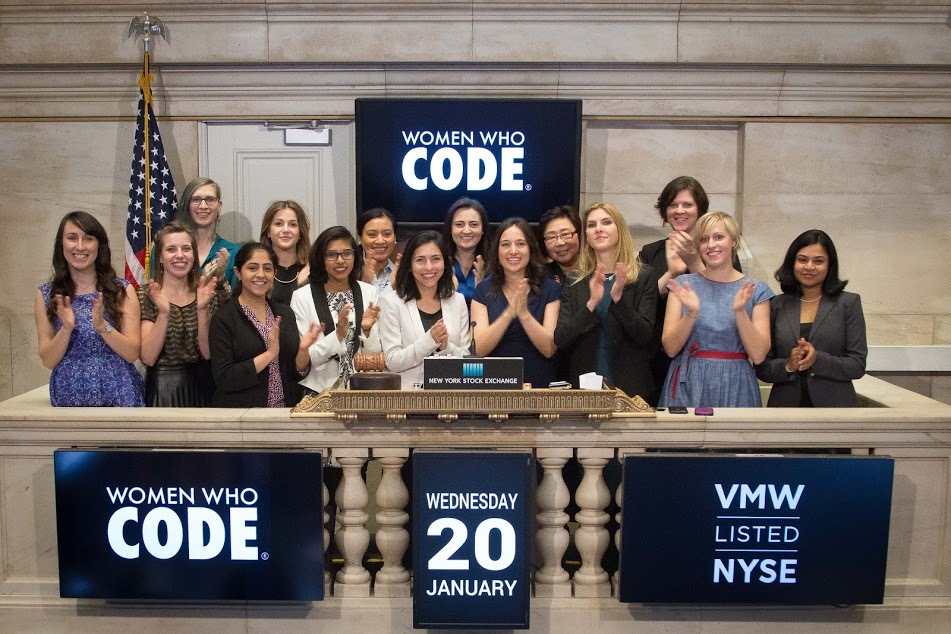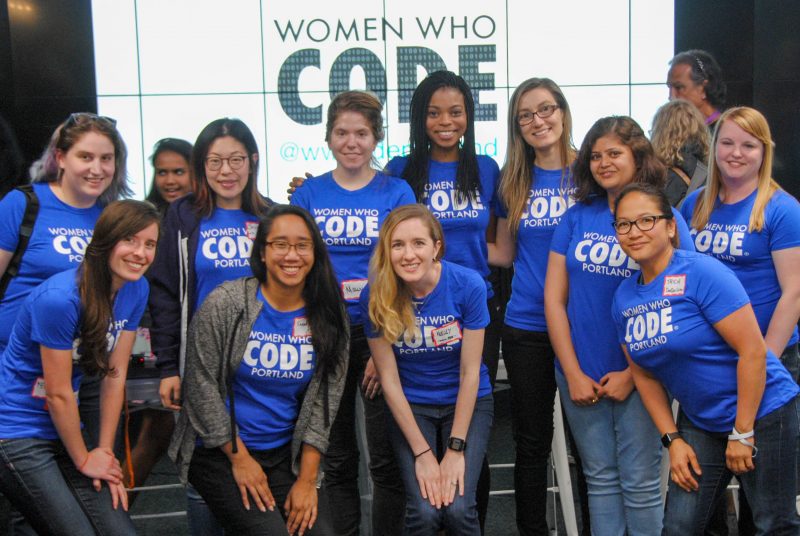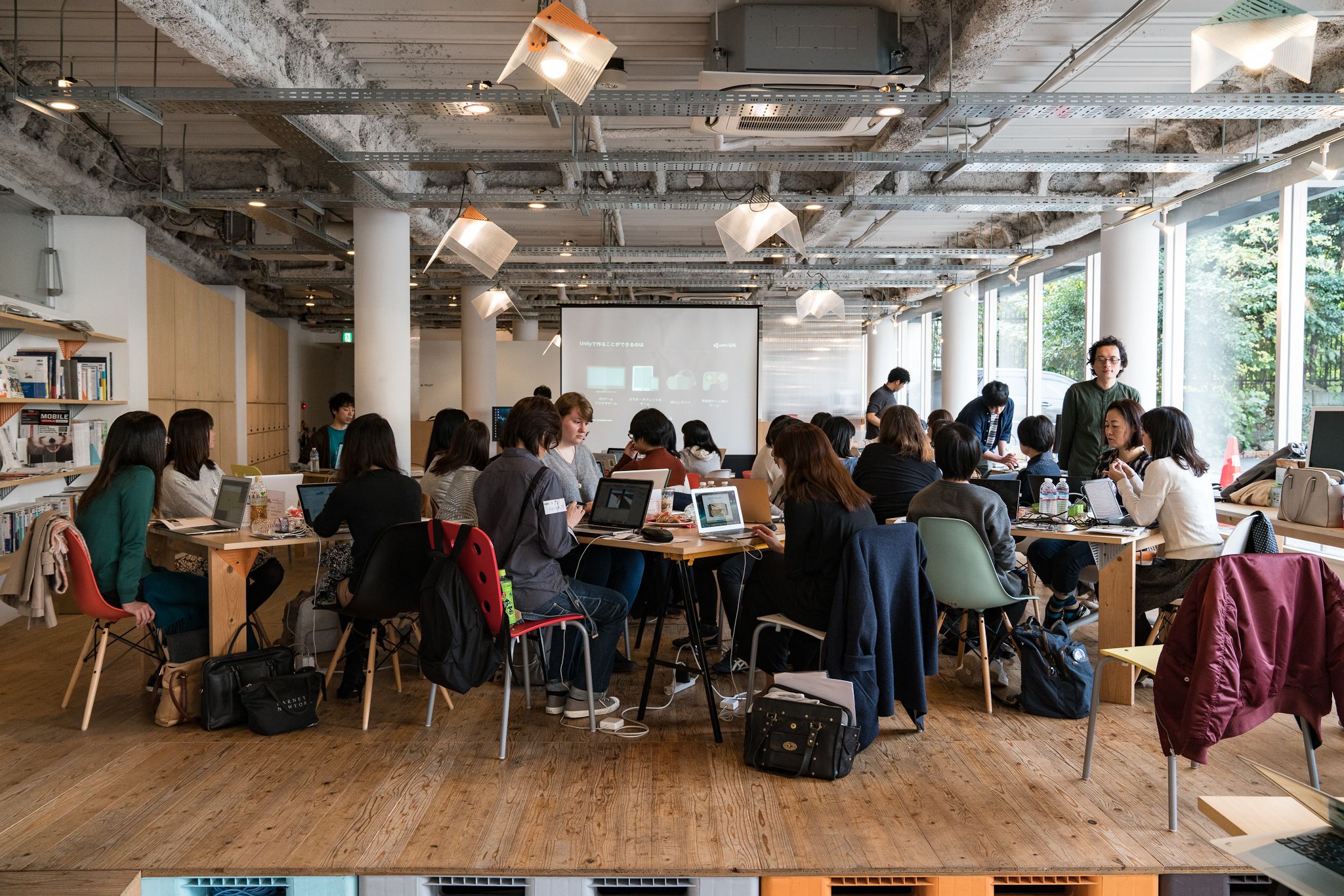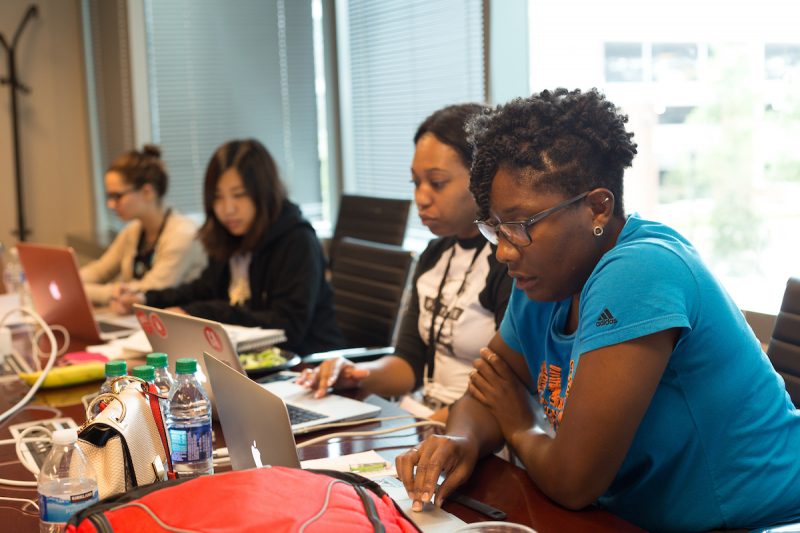Whether you are a young girl with a strong passion for computer science or an experienced woman, the tech industry could be a hard place for you, being mostly a man dominated field. To promote gender equality; to help younger women to start their career; to help the older ones to improve, develop, learn new skills Women Who Code was started. You can also read this Codecademy review if you’re looking for a coding class. Today we speak with the CEO of Women Who Code, Alaina Percivail.
If you got inspired and want to learn c ++ programming as well, check out codingpanel.com.

IN THE PHOTO: Women Who Code PHOTO CREDIT: Women Who Code.
What is your story? How did you become the CEO of Women Who Code?
Alaina Percival : I have a background in community building and organizational management, but when it comes to becoming the CEO of Women Who Code the most important prerequisite was the willingness to step up. When I first joined, Women Who Code was a meetup group getting started in the San Francisco Bay Area. I knew it could be more, so when things were needed, I was willing to step up. I believed in the organization, and saw the good that it could do, so I filled in wherever it was needed and took whatever steps were required to help it thrive and grow. That’s how I became the CEO and that’s something that is really important for any career in the modern economy. You have to be willing to constantly reinvent yourself, fill in gaps where they exist, and make decisions when other people hesitate.
What areas of technology is Women Who Code focused on?
AP: One of the things that separates Women Who Code from other organizations, is that we focus on supporting the success of career aged women in tech. When I first joined the group, there was a great conversation going on in the tech industry about working to help girls in school get more involved in computer science. While that is important, it was being done to the exclusion of the many women who were already doing amazing things in the industry. By putting our efforts into supporting career aged engineers, Women Who Code helps to develop the role models for young women who might be interested in tech, while also changing the industry from the top down by celebrating the women leaders and encouraging others to grow into those positions.
How do you think technology could help improve our life in the future?
Technology allows us to get our data and analyze the impact of different factors in a much quicker and more powerful manner. That is something that inherently comes with both more risk, and more possibilities.
 IN THE PHOTO: Coding Session at the Woman Who Code PHOTO CREDIT: Women Who Code.
IN THE PHOTO: Coding Session at the Woman Who Code PHOTO CREDIT: Women Who Code.
How does your company help those who don’t feel confortable with technology?
AP: Transitioning into technology is something that can happen at different times in a person’s professional career. It can happen at the beginning when first choosing a path, but it can also come when someone decides to move into a new role, or take on a new challenge. There is also a period of reintroduction to tech for those returning to careers after maternity leave or some other life change.
Women Who Code supports people in their transition into tech no matter where they are in their professional journey. To date we’ve provided over $2M in scholarships to coding schools, bootcamps, and tech events, to help people at all levels gain the skills they need to succeed in their goals. We also host 2,000 free technical events each year where people can not only brush up on their skills but also meet colleagues and mentors that can guide and advise them.
Technology is constantly changing: how does Women Who code keeps up to date with the latest developments?
AP: One of the ways that Women Who Code keeps up with the latest tech developments is by remaining language agnostic. We don’t promote any particular programming language above any others, and we are always excited to host programming for the latest hot tech trends and developments.
RELATED ARTICLES:
![]() COULD EMPOWERING WOMEN HELP US MEET
COULD EMPOWERING WOMEN HELP US MEET
ALL THE SUSTAINABLE DEVELOPMENT GOALS? by Marion Verles
![]() TECHNOLOGY : AN AGENT OF CHANGE FOR WOMEN
TECHNOLOGY : AN AGENT OF CHANGE FOR WOMEN
IN DEVELOPING AREAS by Roya Mahboob
![]() BREAKING STEREOTYPES WITH ALJA ISAKOVIC: WOMEN IN TECH
BREAKING STEREOTYPES WITH ALJA ISAKOVIC: WOMEN IN TECH
by Ilona Griniute
What areas of technology do you consider to be the most important to know?
AP: That really depends on what your goals are, and that question is actually kind of a mine field, as everyone has their own personal favorites. In fact we recently updated our Code of Conduct to reflect that we do not discriminate against anyone based on their choice of programming language.
IN THE PHOTO: WWC at Atlanta Hackathon PHOTO CREDIT: Women Who Code.
How does Women Who Code reach to new members?
AP: We have a weekly Newsletter called the CODE Review that contains opportunities, news, and inspirational stories. We also have a broad social media presence with over 165,000 followers on Twitter alone, and we are constantly publishing articles, blogs, and news stories in order to reach out to new and existing members. However, Women Who Code’s greatest growth actually comes from our members. 97% of them report that they would tell a friend about Women Who Code.
For those who are interested in Women Who Code but don’t live in a city included in your network, how could they reach you?
AP: Women Who Code has local Networks in 60 cities and 20 countries around the world and we are constantly expanding. However if you don’t have a Network in your city yet, we also have a great online presence. You can check our page WomenWhoCode.com or our social networks.
Do you think there is any way to make coding more accessible to everyone?
AP: Coding needs to be taught as part of the core curriculum in elementary schools. There are also web based training programs that are free, and many of them don’t require you to install anything which means they can be taken even on a public computer. Another path that may be more accessible is the use of mobile apps, as many people who don’t have access to a full computer may still own a phone. In addition, Women Who Code hosts more than 2,000 free technical events each year where you can not only brush up on your skills and learn new ones, but also find people who can support and help you in your goals.



 IN THE PHOTO: Coding Session at the Woman Who Code PHOTO CREDIT:
IN THE PHOTO: Coding Session at the Woman Who Code PHOTO CREDIT: 







